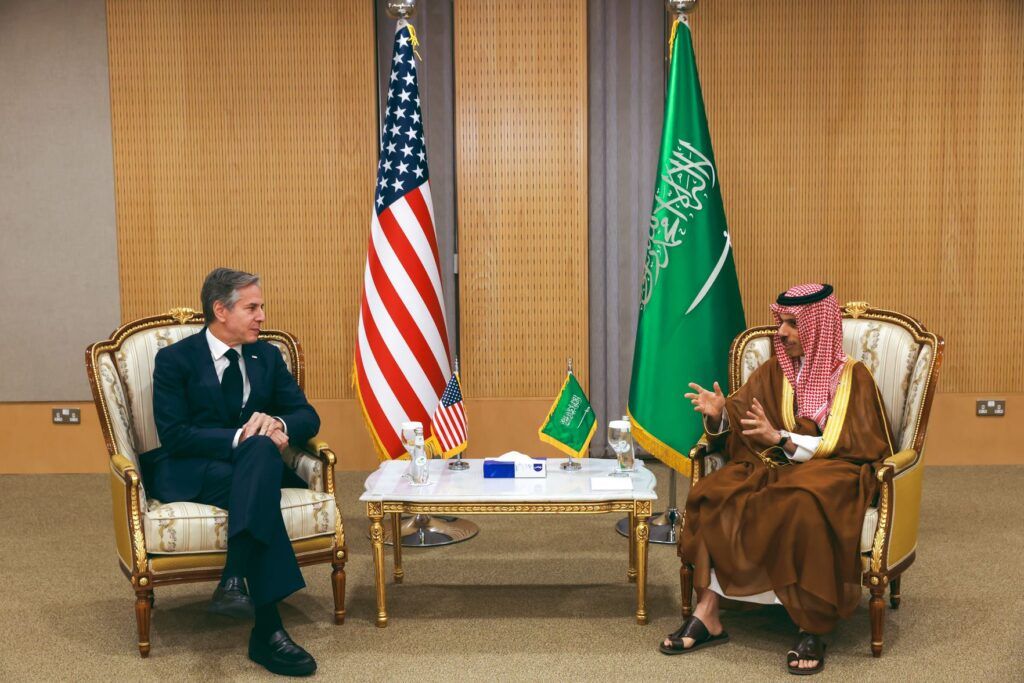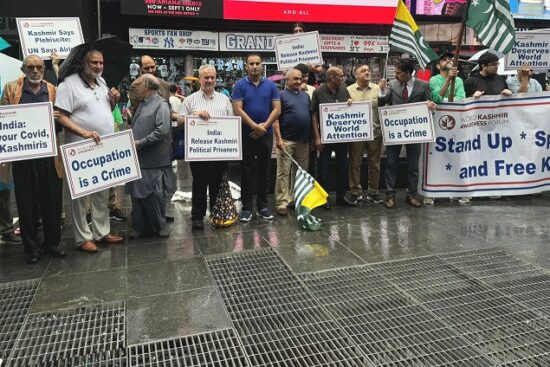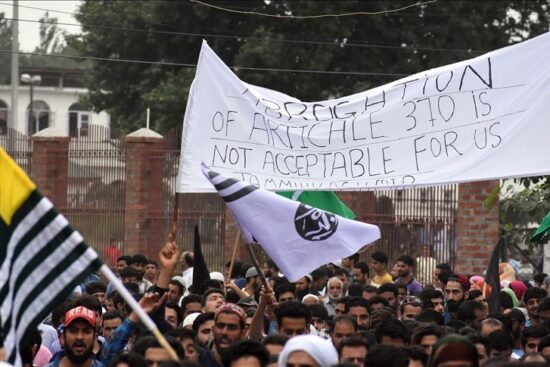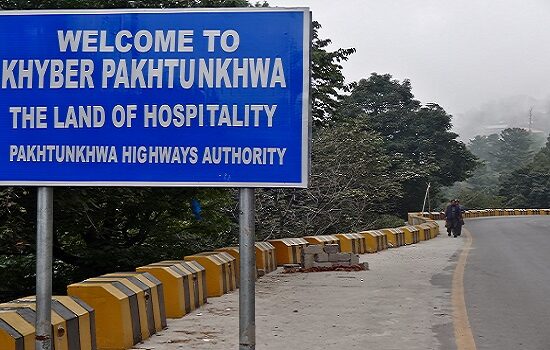
Saudi Arabia, the world’s largest oil exporter, seeks US assistance and technology to develop its nuclear energy program. With almost daily processions against Gaza disasters, American, Saudi, and Israeli authorities have discreetly postponed fixing Israeli-Saudi relations. However, it is just a matter of time that a Saudi-backed “peace” pact and a lucrative US civilian nuclear accord may convince Riyadh to recognize Israel. The Biden Administration has responded positively to Saudi Arabia’s interest in civil nuclear cooperation, because such a cooperation is a Saudi pre-condition for normalizing Saudi-Israeli ties, which the Administration firmly supports. Moreover, a bilateral civil nuclear partnership is likely to benefit both countries significantly. Such a collaboration must be undertaken in a way that maximizes advantages, while minimizing the hazards of nuclear proliferation.
A civil nuclear agreement between the United States and the Kingdom of Saudi Arabia (KSA) might assist Saudi Arabia achieve its wishful nuclear energy and economic ambitions while also revitalizing the US nuclear sector. It could also encourage a wide range of cooperative activities, including participation of US companies in the first phase of Saudi nuclear reactor construction and Saudi investment in a US-based uranium enrichment operation, which could help decrease the US reliance on Russian enriched uranium imports. Saudi officials believe that such cooperation should also include the United States building a uranium enrichment facility in Saudi Arabia—a facility designed for providing low-enriched uranium to fuel civil nuclear reactors but, if not bound to efficient controls, it remains capable of producing highly enriched uranium for use in nuclear weapons.
The Saudis argue that having a domestic enrichment capacity would allow KSA to use its uranium reserves to power its projected nuclear reactor development, while also profiting from the sale of uranium products in global market. However, a domestic enrichment program may offer more commercial and nuclear energy benefits for the monarchy. Crown Prince Mohammed Bin Salman and other top Saudi officials have repeatedly stated that the Kingdom of Saudi Arabia is committed to obtain nuclear weapons if Iran does, therefore Saudi involvement in enrichment is perceived worldwide as tied to Saudi strategic aim.
For decades, a key component of US non-proliferation strategy has been opposition to the spread of uranium enrichment and plutonium reprocessing (sometimes known as “fuel cycle”) capabilities. In addition to refusing to transmit fuel cycle equipment and technology to other nations, the United States has actively attempted to deter other nuclear supplier countries from selling such technologies and possible recipient countries from buying them.
In recent years, Washington has sought a binding commitment not to pursue fuel cycle capabilities (often referred to as the “gold standard”) but has only obtained such a commitment in the case of its agreement with the United Arab Emirates. US backing for an enrichment plant in the KSA might harm the global non-proliferation framework, even if proper non-proliferation safeguards are put in place to effectively prohibit the potential of contributing to Saudi nuclear weapons capacity. Building an enrichment facility in KSA would be seen as a significant reversal of US nonproliferation policy.
The proposed civil nuclear agreement between the United States and Saudi Arabia has important consequences for the Middle East. Amidst the world’s attention on the daily upheaval in Gaza, a more significant, if quieter, dialogue is taking place. Saudi Arabia, the world’s largest oil exporter, is actively pursuing US aid and technology to further its nuclear energy aspirations. This quest involves more than just oil; it is linked to bigger strategic concerns, such as the long-awaited restoration of ties between Saudi Arabia and Israel.
The Biden administration has expressed a favorable attitude toward Riyadh’s nuclear plans. This collaboration might act as a diplomatic lever, perhaps smoothing the route to Saudi-Israeli rapprochement, which Biden administration favors. Furthermore, a US-Saudi nuclear connection provides reciprocal benefits, such as rejuvenating the American nuclear sector and lowering the US reliance on Russian uranium. However, the road ahead is filled with obstacles, particularly in terms of nuclear proliferation dangers.
The proposed nuclear accord might result in significant gains for Saudi Arabia’s energy industry and economy. U.S. corporations may lead the building of the first phase of Saudi nuclear reactors, increasing their worldwide reach and experience. Furthermore, Saudi investment in U.S. uranium enrichment activities might reduce America’s reliance on Russian-enriched uranium, so strengthening national energy security. This approach remains consistent with Saudi Arabia’s Vision-2030, that aims to diversify its economy beyond oil.
Nonetheless, the Saudi Government’s desire for local uranium enrichment presents serious concerns. If such a facility is not properly monitored, it may generate both low-enriched uranium for civilian reactors and high-enriched uranium for nuclear weapons. The world community is on high alert after Crown Prince Mohammed bin Salman and other authorities stated that they would pursue nuclear weapons if Iran also developed them. Supporting Saudi enrichment would be a sharp reversal of long-standing US nonproliferation policy, that has always resisted the proliferation of uranium enrichment and plutonium reprocessing technology.
The advent of nuclear capabilities in Saudi Arabia may potentially trigger a regional arms race, notably with Iran, destabilizing an already dangerous area. This situation might greatly complicate US and global security interests, necessitating strict nonproliferation efforts. Saudi Arabia’s nuclear accomplishments might pose a direct danger to Iran. In reaction, Tehran may accelerate its nuclear program, raising regional tensions and possibly sparking an arms race. Such changes might jeopardize the Middle East’s already shaky security framework, hampering diplomatic attempts to prevent nuclear proliferation. Additionally, other regional nations may feel obliged to seek nuclear capabilities, thus further exacerbating the situation.
To reduce these hazards, any nuclear collaboration ought to have strong safeguards. Oversight and inspections by the International Atomic Energy Agency (IAEA) remain critical to ensuring the peaceful use of nuclear technology. Furthermore, obtaining a formal commitment from Saudi Arabia to forego refinement and reprocessing capabilities, similar to the agreement with the UAE, is also critical. Regional efforts to designate the Middle East as a nuclear-free zone might also help avert an arms race.
While a US-Saudi nuclear agreement has significant benefits and might open the way for larger regional diplomacy, it should be viewed with caution. The deal’s success will remain contingent upon the stringent nonproliferation efforts that avoid nuclear weapons development and maintain regional security. Integrating these strategic benefits with the need for a strong nonproliferation regime is crucial to the region’s long-term security. The ramifications for the whole region, particularly in Iran, highlight the importance of taking deliberate, planned steps to guarantee that nuclear breakthroughs do not lead to further instability and violence.



















Leave a Reply